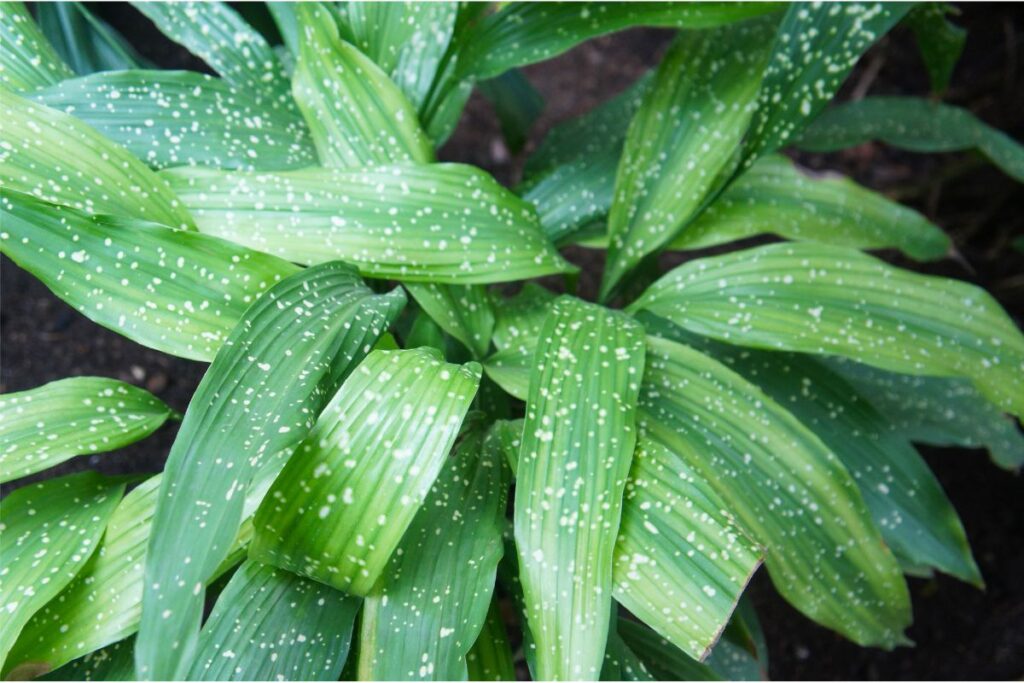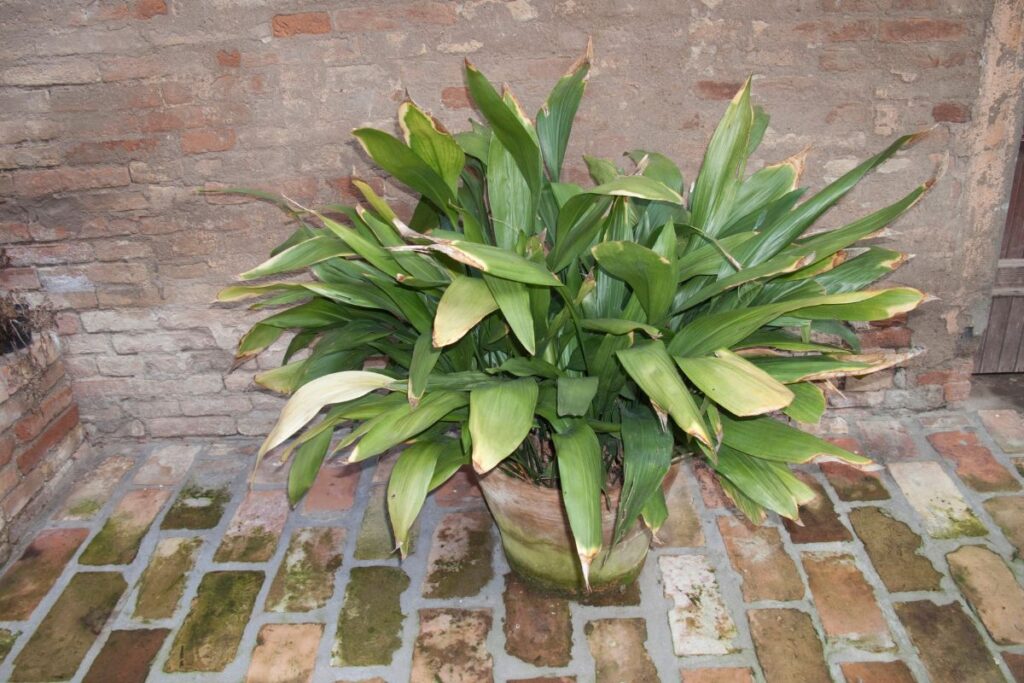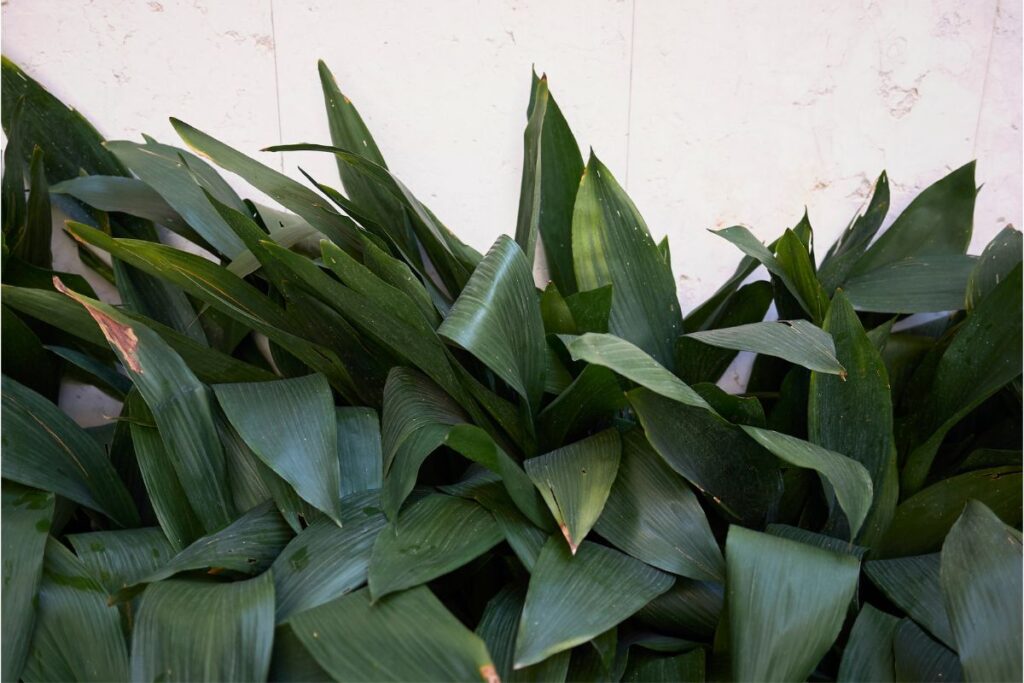Have you recently purchased a cast iron plant and are wondering if it’s safe for your cats? The answer isn’t always clear. While some parts of the plant can be toxic to cats, there are precautions you can take to keep them safe. In this article, we’ll tell you what parts of the cast iron plant are toxic, what symptoms to look out for in case of poisoning, and how to keep your cat out of harm’s way.

Contents
What Are Cast Iron Plants?
Cast iron plants are resilient, evergreen houseplants that belong to the lily family. These hardy plants can be grown both indoors and outdoors, offering many benefits even for the most inexperienced gardeners. Care tips include keeping them in indirect light or full shade, providing well-drained soil, and watering regularly. Popular cultivars include Aspidistra elatior (the Iron Plant or Bar Room Plant), Aspidistra lurida and Aspidistra yingjiangensis. Propagation methods of cast iron plants include stem cuttings or division of clumps. Ideal growing conditions consist of moist soil in partial sun or shade with temperatures above 50°F (10°C).
Are Cast Iron Plants Toxic To Cats?

No, cast iron plants aren’t harmful to cats. In fact, these plants are safe for cats and provide many benefits. Not only are they non-toxic, but they also help purify the air due to their natural ability to absorb toxins from the environment. If you’re looking for alternatives to cast iron plants that are just as safe for cats, consider philodendron or spider plants. When caring for your cast iron plant, make sure it is placed in an area with plenty of indirect sunlight and watered whenever the soil is dry. It’s important to be aware of common houseplants that may be toxic to cats such as lilies and poinsettias so you can avoid them completely if necessary.
What Parts Of The Cast Iron Plant Are Toxic To Cats?
No part of the aspidistra is known to be harmful to cats. Cats are unlikely to chew on cast iron plants, but if they do, it could point toward a nutritional deficiency or an upset stomach. If your cat is chewing on any houseplant, it’s important to pay attention to signs of toxicity which include vomiting, lethargy and lack of appetite. It’s also important to familiarize yourself with common toxic plants for cats and opt for cat-friendly houseplants instead. To prevent plant chewing in cats altogether, make sure they’re getting enough nutrients in their diet and have plenty of toys and activities available that keep them entertained.

What Are The Symptoms Of Poisoning In Cats?
Symptoms of poisoning in cats may include nausea, vomiting, lethargy and a lack of appetite. Cast iron plants can be toxic to cats if ingested in large amounts, so it’s important to know what other common houseplants may be unsafe as well. If your cat does eat any part of the cast iron plant, watch for signs of distress and contact your vet for advice on causes and treatment. Prevention is key when it comes to keeping your pet safe from potential complications due to plant ingestion. When selecting safe alternatives for your home, make sure they are not toxic to cats or other animals that may be living with you.
Precautions To Take Even With Safe Plants
Even with safe plants, it’s important to take precautions to ensure the well-being of both you and your pets. Container plants should be placed in a spot where they won’t easily tip over, as a curious cat may knock the plant over otherwise. You should also regularly clean the plant’s leaves to aid photosynthesis and check for illness or infestation. After handling your cast iron plant, wash your hands to prevent the spreading of diseases between houseplants. To keep cats away from dangerous pot shards or fertilizers, consider these techniques:
- Catproofing by keeping the pot out of reach
- Moving the plant to another room
- Discouraging chewing, scratching, or digging in soil
- Keeping insecticides and fertilizers away from cats
Conclusion
You now know that cast iron plants aren’t toxic to cats, but it’s still important to take precautions. Even though the plant itself is safe, there may be other components in it that can cause harm if ingested by your cat. Be sure to keep an eye on your pet and watch for any signs of poisoning, such as vomiting or diarrhea. If you notice any of these symptoms, contact your veterinarian right away. With these simple steps, you can ensure that both you and your cat enjoy a happy life with a beautiful cast iron plant!
